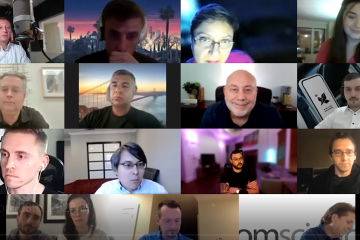What is an angel investor?
Angel investor, often individuals with substantial wealth, explore investment opportunities in emerging startups or prospective entrepreneurs in exchange for an equity stake. They’re alternatively recognized as seed funders, angel financiers, and individual investors.
These angel financiers are frequently found within an entrepreneur’s inner circles, which may include family, friends, and direct contacts. The familiarity resulted in the famous acronym – Friends, Family, and Fools (FFF).
The financial support provided by angel financiers can come in the form of a one-off venture capital to assist the entrepreneur in kick-starting the business or as continuous investment to aid the startup during its challenging infancy stage.
Launching their ventures always presents significant risks for early-stage startups due to the uncertainties involved, which discourages institutional investors. Often, these startups lack substantial progress and financial results, leading them to rely on self-financing or angel financing.
Providing contract terms that are more favorable than those offered by competing financiers, angel investors usually get involved during the venture’s infancy, such as when designing the prototype. Their deep appreciation of the start-up’s long-term development, complemented by their entrepreneurial background, sets them apart from venture capitalists (VCs).
What is a startup pitch?
A startup pitch is essentially a project presentation made to prospective investors.
In our previous post, we noted that a pitch presentation can be categorized based on various aspects, such as its focus (business model pitch, team pitch, product-solution pitch, vision-opportunity pitch, etc), duration (one-liner pitch, elevator pitch, competition pitch, and investor pitch), and timing (presentation pitch deck and email pitch deck). A pitch can be delivered with or without a presenter, depending on the mode of communication (email document or live event).
Sports, specifically American baseball, provides the origin of the term “pitch”. It refers to a throw from the defensive team. The pitcher’s objective is to throw the baseball in such a manner that the opponent fails to hit it and his teammate catches it effortlessly. This non-verbal interaction problem is exactly what every business pitch aspires to resolve.
The term pitch became commonplace by the early 20th century, predominantly in sales contexts. However, it wasn’t until the 80s and 90s that it began to adopt the current connotation – presenting a startup for investment. During this period, personal computers (PCs) had become reasonably priced, permitting enthusiasts to create IT products and software from their own homes.
Angel investors and startup pitches
Active angel investors find themselves sifting through countless pitch decks and enduring a multitude of startup presentations year in and year out. In reality, a notable majority of entrepreneurs rarely secure investments, as angel investors only finance a minuscule fraction of these ventures. What criteria do these investors use in making their selection? The answer is complex, and in this piece, we aim to decipher the techniques employed by these financiers to sift through business proposals and identify the attributes they most appreciate in both startup founders and their teams.
Usually, startup pitches take place at screening sessions, paving the way for entrepreneurs to advance their concepts with the goal of securing investment. One of the advantages of such forums is that investors, or ‘angels,’ frequently provide invaluable feedback to the entrepreneur. This constructive criticism is a key resource in improving not just the pitch, but also how the startup presents its vision and product/service design.
More often than not, these ‘angels,’ who typically have a background in the startup world, provide instrumental advice that aids the founder in their capital-earning endeavors. So, founders should not feel demotivated when their pitch is scrutinized at these sessions.
Of course, this is easier said than done, but it’s paramount for entrepreneurs to cultivate resilience and maintain assurance despite unsuccessful pitches. Every obstacle should be seen as a building block in the iterative input loop of the fundraising journey. In layman’s terms, gear up for the arduous road to funds procurement for your enterprise – it can be tough, but tremendously rewarding when achieved.
Reflecting on this, some angel investors themselves used to be, or still are, startup founders and inherently comprehend the stress that comes with raising capital. This empathy often leads them to provide guidance on accelerating the process. Initially, they might be disinclined to invest, yet show higher chances of making the investment if the founder exhibits grit and perseverance during the mentorship.
The foregoing reflects significant potential for rookie entrepreneurs to greatly benefit from affiliating with a veteran angel investor. Gleaning lessons from someone who has personally traversed this path can sometimes have more impact than immediately receiving funds.
Globally, myriad organizations, associations, and platforms conduct important events where startups present their projects, aiming to secure funding and build essential alliances for their growth. In this write-up, we majorly delve into the operational procedures of the Tech Coast Angels during such engagements.
Who are Tech Coast Angels?
Founded towards the downfall of the last century, Tech Coast Angels (TCA) is one of the most triumphant angel investing circles in the USA. Their primary aim orbits around spotting and investing in breakthrough startups during their nascent stages, thereby aiding these novel enterprises in penetrating wider markets. More than just financing, TCA provides invaluable mentorship and affords startups access to its extensive network of associates.
TCA Screening Procedures
The process of assessing startups is a critical factor in the Tech Coast Angels (TCA) funding venture. The TCA website sees around 500 online applications from various businesses, yearly. Remarkably, only about twenty-five percent of these applicants proceed to the startup preliminary screening phase and barely 10% receive approval after due diligence.
Though there can be slight differences from year to year, TCA customarily finances between 10 to 20 new projects yearly. The TCA organization has five distinguished branches – San Diego, Orange County, Los Angeles, Inland Empire, and Central Coast. Although each faction has its unique operating mechanism, the overarching process unfolds in multiple phases:
1. Completion of Online Application – The journey into the TCA funding realm begins with the filling of an online form, calling for a brief description of the company accompanied by a swift financial overview. Founders must submit an investors’ presentation deck as well.
To learn more about the funding application process: https://www.techcoastangels.com/apply-for-funding/
2. Initial Evaluation – Post-application, an initial analysis is done by TCA consultants and sector-specific investor panels. They decide if the application aligns with the group’s area of focus. If it passes this stage, founders get a chance for an elevator pitch at a preliminary screening assembly.
3. Preliminary Scrutiny Session – Each panel holds unique preliminary screening meetings, generally involving an elevator pitch, timed between 8 to 15 minutes, trailed by a Q&A session. The pitch is presented to a small group of TCA members with industry-specific expertise relevant to the startup. It could be a virtual meeting or physical assembly. The intention here is to review if the startup can effectively articulate its ideas to a wider group and get constructive feedback that would improve their pitch. Once they pass this stage, an invitation for a screening session is extended.
4. Detailed Review Session – On average, four startups participate in the bi-monthly screening sessions targeted by Tech Coast Angels. These meetings cover a 15-minute digital pitch plus an interactive Q&A session of the same length. Following each presentation, the entrepreneur leaves the room so TCA members can deliberate whether to move forward into due diligence. The presenter is then invited back into the room and immediate feedback is provided. These sessions are often recorded to allow members who could not be present to join the discussions occurring on the exclusive member-only secured website. The objective of a screening meeting is to generate vast interest among the TCA members and select a “deal lead”. This individual will guide the due diligence and stay in touch with the founder throughout the whole funding cycle.
5. Due diligence – Following the preliminary screening, the detailed review or due diligence process begins when the interested parties come onboard. A deal lead steps in to oversee the due diligence process which involves a meticulous appraisal. This entails corroborating the assertions made by the entrepreneur, consulting clients, reviewing existing contracts and patents if any, confirming references and backgrounds, and more. The findings from this process of due diligence are uploaded onto the private Tech Coast Angels’ online platform (accessible only to members). If these findings are promising, the business proposal progresses to the next level which may be a monthly social gathering, depending on the collective decision.
6. Monthly launch/dinner meeting – Startups that successfully pass the due diligence phase are presented at the regular lunch/dinner meetings conducted by several networks. Here, they are introduced by the “deal lead” who piloted the due diligence team, providing the entrepreneurs with an opportunity to pitch to members who might not yet have encountered their initial presentation. This stage is crucial for entrepreneurs as it affords them their final opportunity to attract enough interest from members to secure the necessary financing. Usually, a pre-agreed term sheet is available when a company pitches at this point. The investment terms of Tech Coast Angels members typically align with the “standard” funding terms, identified over time by venture capitalists and seasoned investors.
7. Procuring Investments – This happens after the entrepreneur and the deal lead successfully generate substantial interest within the dinner meetings and through internal communication. Although investment decisions are made individually, members agree to the same terms. Therefore, only a small number of our members need to participate in the opportunity to assure funding. The typical individual investment by a Tech Coast Angels member is around $25,000.
The majority of Tech Coast Angels’ investment focus is on Southern California enterprises. However, the network is open to evaluate ANY startup or seed company that satisfies other necessary requirements. Considering the technology and market sector, TCA can pinpoint the ideal network for your funding needs. TCA actively participates in syndicate deals (both inbound and outbound) with multiple angel networks across the US, forming part of the Angel Syndication Network of over 50 Angel Groups.
Visit the Angel Capital Association website to find a comprehensive list of US member angel entities.
Tech Coast Angels prioritizes the following key factors when considering potential startups:
- Businesses located in Southern California
- Strong and experienced startup teams
- Solutions addressing a significant market issue
- Expansive and achievable market potential
- A defensible business strategy or patentable technology
- Demonstrable long-term competitive advantage
- A degree of market validation or proven momentum
- Ability to attract additional funding rounds
- High exit potential.
Why those investment criteria?
- Location – The Angels predominantly prefer to invest in startups situated in San Diego and Los Angeles—the ease of monitoring progress, providing necessary mentorship to entrepreneurs, and understanding the Californian legal landscape gives advantages in resolving potentially complicated situations.
- Team Member Characteristics – Startups comprising experienced and cohesive teams demonstrate higher growth potential. The list of preferable characteristics is substantial, but the ability to make robust decisions and ample experience frequently top the list.
- Effective Solutions for Market Challenges – Forming a company that effectively addresses everyday challenges is a positive stride, adding significant value to society and the economic structure.
- Broad Potential Market – The necessity of a large segment of global consumers intrigued by the offered solution, coupled with the potential revenue growth outlined by the startup, determines its success.
- Protectable Assets (Technology or Business Model) – This implies the existence of a successful business model or technological innovation difficult for competitors to replicate. Such an asset becomes invaluable for startups when procuring investment from organizations like TCA.
- Sustained Competitive Advantage – This pertains to previously mentioned exceptional assets—a distinguished business model, a leading brand, an extensively patented cutting-edge technology, or a superior product. Possessing a competitive edge can aid the company in protecting or possibly enhancing its market share.
- Confirmation of Market Acceptance or Traction – This functions as proof that the startup’s products or services are indeed sought after. This is quantified not only in financial gains but also in marketing parameters like social media followers on Facebook, Twitter, Linkedin & Instagram, and website traffic. Performance appraisal parameters vary according to the specific sector of the startup.
- Likelihood of Future Funding Rounds – If a startup showcases the potential to attract larger and more reliable investors in the future, it becomes an attractive proposition for current investors, promising them profitability.
- High Exit Potential – High growth prospects indicate an exponential surge in the company’s value over time, enticing potential buyers to acquire it for a significant amount. A high-value exit possibility indicates a high probability of getting a return on investment.
Different angel organizations apply distinct investment criteria, but well-established ones adopt similar methods for evaluating investment pipeline projects, similar to the framework of TCA.
During startup pitch events, angel investors evaluate not just the presentation skills of the founder, but also the startup’s scalability that could achieve a value multiplication of more than 20 times. If the entrepreneur provides convincing figures signifying remarkable traction and robust scaling potential, their chances of winning over the investors increase.



1 Comment
Cesar Viana Teague · September 9, 2022 at 11:11 AM
Excellent article here Lachezar and thanks for sharing this. In addition to helping Small Business & Startup Founders with Go To Market services for sales growth in the USA & Europe, I’m also an Advisor at Bay Angels on Deal Flow. Good to network here and collaborate on it. Thanks.